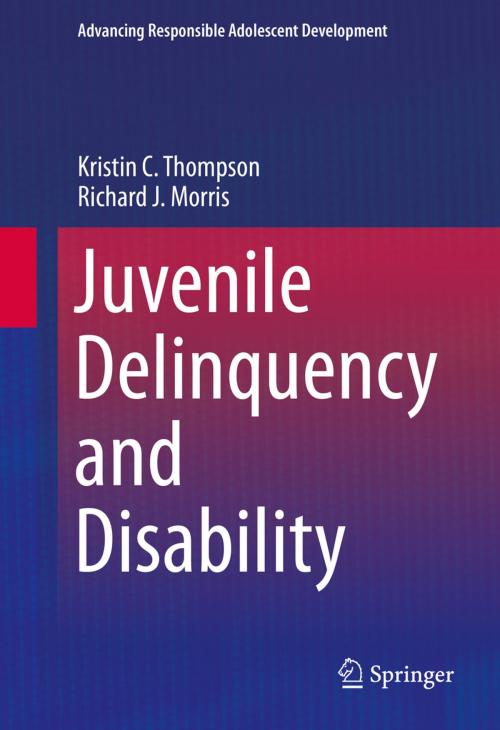Juvenile Delinquency and Disability
Nonfiction, Health & Well Being, Psychology, Child & Adolescent, Child Development, Social & Cultural Studies, Social Science, Crimes & Criminals, Criminology| Author: | Kristin C. Thompson, Richard J. Morris | ISBN: | 9783319293431 |
| Publisher: | Springer International Publishing | Publication: | April 12, 2016 |
| Imprint: | Springer | Language: | English |
| Author: | Kristin C. Thompson, Richard J. Morris |
| ISBN: | 9783319293431 |
| Publisher: | Springer International Publishing |
| Publication: | April 12, 2016 |
| Imprint: | Springer |
| Language: | English |
This book discusses the relationship between juvenile disability and delinquency, including characteristics of youth with disabilities, how disability relates to delinquency, and its impact during a youth’s involvement with the juvenile justice system. The book details the relationship between developmental, cognitive, psychological, and educational disorders—specific conditions including ADHD, bipolar disorder, and autism spectrum disorder—and delinquency in light of both their overrepresentation among youth offenders and the uninformed handling of these youth within the court system. Case studies illustrate the complexities in the processing and placement of these youth offenders, as well as highlight the barriers to delinquent youth receiving appropriate treatment, and their increased risk of reoffending. From this robust knowledge base, the authors make expert recommendations for improving the juvenile justice system at the practice and policy levels to better serve this population.
This authoritative volume:
• Identifies characteristics and risk factors associated with juvenile delinquency.
• Reviews evidence relating developmental, mental health, and other disorders to juvenile offending.
• Describes the implications of disabilities in key areas such as offending, risk assessment, competency, and outcomes.
• Examines the role of disability law in the juvenile justice system.
• Offers guidelines for professionals to use this knowledge in their work.
Juvenile Delinquency and Disability is an essential resource for researchers, scientist-practitioners, and graduate students in clinical, counseling, and school psychology, criminology and criminal justice, child psychiatry, educational policy and politics, developmental psychology, and social work.
This book discusses the relationship between juvenile disability and delinquency, including characteristics of youth with disabilities, how disability relates to delinquency, and its impact during a youth’s involvement with the juvenile justice system. The book details the relationship between developmental, cognitive, psychological, and educational disorders—specific conditions including ADHD, bipolar disorder, and autism spectrum disorder—and delinquency in light of both their overrepresentation among youth offenders and the uninformed handling of these youth within the court system. Case studies illustrate the complexities in the processing and placement of these youth offenders, as well as highlight the barriers to delinquent youth receiving appropriate treatment, and their increased risk of reoffending. From this robust knowledge base, the authors make expert recommendations for improving the juvenile justice system at the practice and policy levels to better serve this population.
This authoritative volume:
• Identifies characteristics and risk factors associated with juvenile delinquency.
• Reviews evidence relating developmental, mental health, and other disorders to juvenile offending.
• Describes the implications of disabilities in key areas such as offending, risk assessment, competency, and outcomes.
• Examines the role of disability law in the juvenile justice system.
• Offers guidelines for professionals to use this knowledge in their work.
Juvenile Delinquency and Disability is an essential resource for researchers, scientist-practitioners, and graduate students in clinical, counseling, and school psychology, criminology and criminal justice, child psychiatry, educational policy and politics, developmental psychology, and social work.















